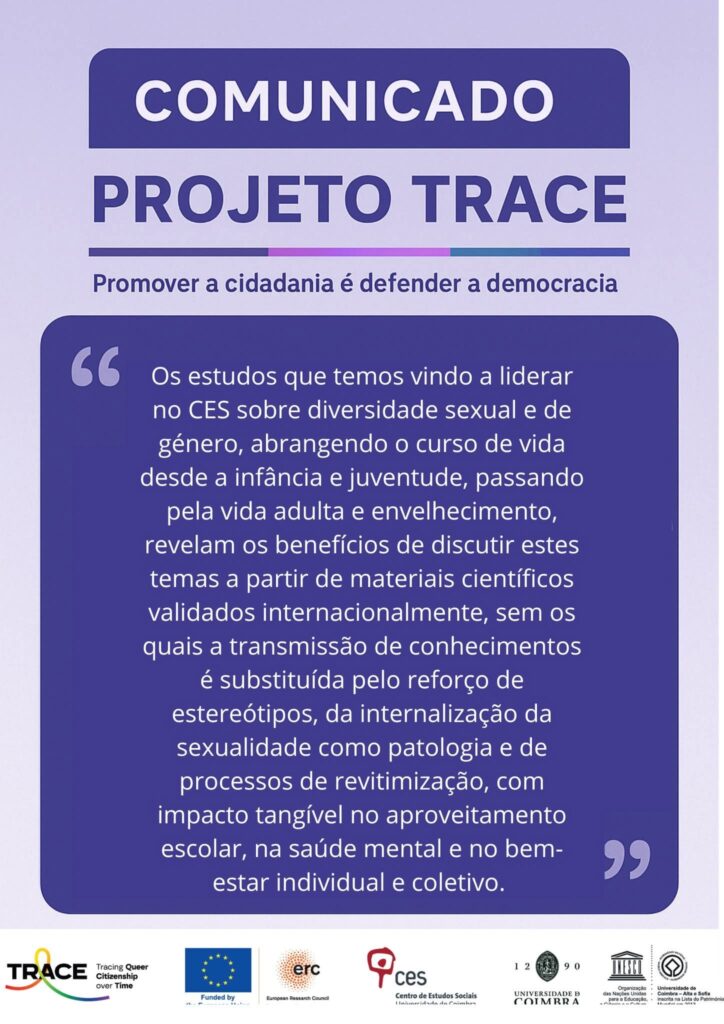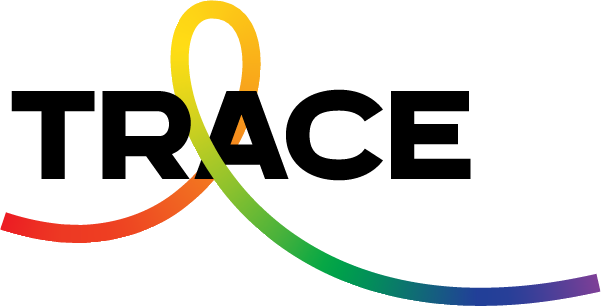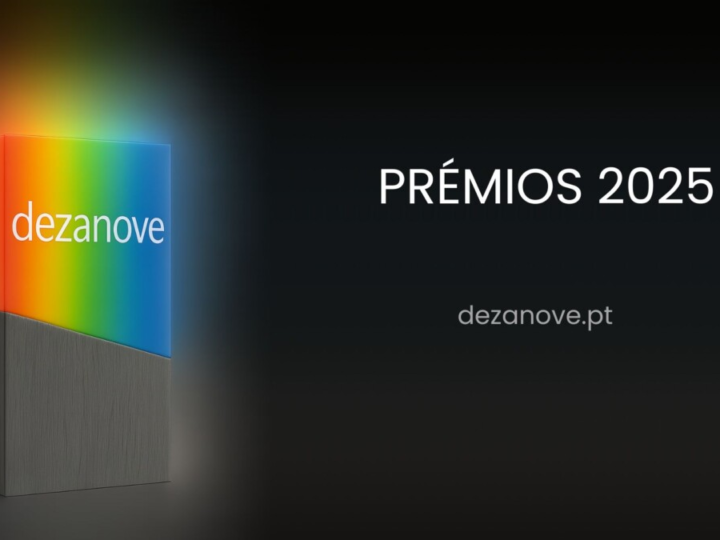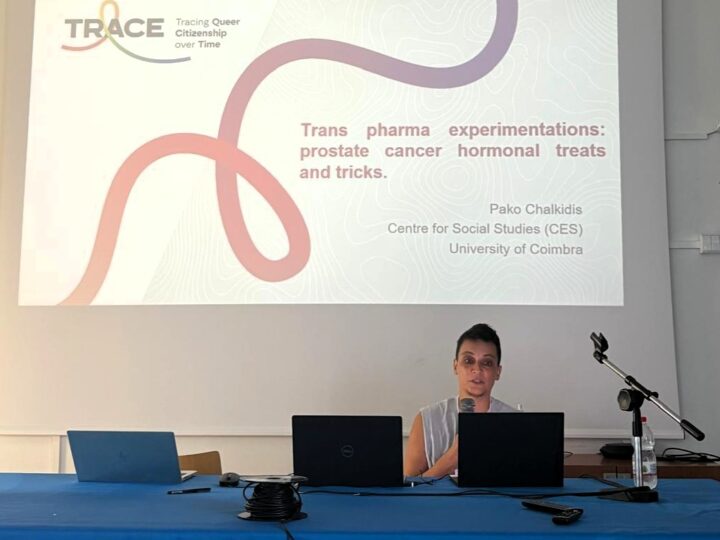Promoting citizenship is defending democracy
The growing threats to democracy are an expanding reality that cuts across various contexts in which the validity of scientific knowledge and academic freedom are systematically called into question. In this context, Sociology, Gender and Queer Studies departments are usually the first to be questioned and closed down.
Fortunately, Portuguese academia has been able to respond to some of these challenges, with three research projects on LGBTQI+ issues having obtained top international recognition in recent years from the prestigious European Research Council, all in the field of Sociology, two of which at the Centre for Social Studies (CES) at the University of Coimbra. Through these and other funded scientific studies, rigorous data is now available on the fundamental importance of including content on sexual and gender diversity at all levels of education in a substantiated, sustained and visible way.
The studies we have been leading at CES on sexual and gender diversity, covering the life course from childhood and youth, through adulthood and ageing, reveal the benefits of discussing these issues using internationally validated scientific materials, without which the transmission of knowledge is replaced by the reinforcement of stereotypes, the internalization of sexuality as a pathology and processes of re-victimization, with a tangible impact on school performance, mental health and individual and collective well-being. The training we have given over the years to professionals from a wide range of fields, with a particular focus on education and health, reveals a common thread: the absence of cross-cutting LGBTQI+ content in education and training and, subsequently, in higher and adult education. This combination of factors is particularly damaging when we know that the incidence of STIs has been increasing, as has misogyny, intimate partner violence and transphobic and homophobic bullying.
Given this scenario, it is with the utmost concern that we are witnessing a high risk of regression in an area where knowledge is still insufficient and practices continue to perpetuate stigma and inequality. Without giving sexual and gender diversity a central place in essential learning in schools in the context of Citizenship, we will continue to give space to ignorance and opacity instead of promoting knowledge, consent, non-discrimination and self-determination.
In the international project TRACE – Tracing Queer Citizenship Over Time, funded by the European Research Council, we carried out in-depth studies with older LGBTQI+ people in five European countries – Slovenia, Greece, Italy, Malta and Portugal. In all of these contexts, past traumas resulting from silence and invisibility, lack of state protection and lack of information from childhood to adulthood are visible. Fear is also common in the face of the advance of extreme right-wing ideology, with growing threats to previously obtained rights and a worsening of hate speech and gender violence.
As we work towards building an egalitarian future, the memories of the hundreds of people we have listened to over the years of our research show us a clear path. Promoting full citizenship, with the dimensions of sexual, intimate and reproductive citizenship, means defending the future of democracy.
The TRACE – Tracing Queer Citizenship Over Time project team,
Ana Cristina Santos (Coord.), Sociologist, Senior Researcher with Habilitation in Human Rights
Ana Lúcia Santos, PhD in Feminist Studies, Associate Researcher
Irene Massa, Clinical Psychologist, Junior Researcher
Joana Brilhante, Anthropologist, Postdoctoral Researcher
Pako Chalkidis, Anthropologist, Postdoctoral Researcher
Pedro Fidalgo, Sociologist, Junior Researcher





